
Now, you might say - its only words, right...? Come on, you know things dont work like that ! Actually both of the above - AMEN and SELAH - are extremely well known words or terms (at least amen) in Christianity (and the whole Biblical scene really). These particular two do enjoy their honourable places in the Bible, and spread around the world in many if not most languages in modern times. Which means, everyone, almost EVERY single one say amen after a prayer, as a sorta, so be it or some say even truth. Forgive me for asking, but what truths do these two particular words hold when placing them up against - say ancient African history or, you guessed it, the ancient tongue of Xhosa? If your new to this blog, you might be a little surprised...

If we start with Sela (or with its prefix iSela) its an easy one, this word means THEIF in Xhosa. Selah is found mostly in Psalms and Habakkuk. However its meaning remains somewhat of a mystery to the academic world. And they, meaning Hebrew scholars and the like, claim not to know what it means. Seriously, they don`t..
Selah (Hebrew: selah, also transliterated as selāh) is a word used seventy-four times in the Hebrew Bible—seventy-one times in the Psalms and three times in Habakkuk. The meaning of the word is not known, though various interpretations are given below.
I am not going to comment, share their various far fetched interpretations below or even wonder too much on the fact that the word thief has been printed in many surviving copies of the Biblical scrolls. I will say this though - if The Almighty wanted some of the pages or copied scrolls to read THEIF in The Mother Tongue (most likely a Bantu language very similar to Xhosa or Zulu), for instance at the end of a Psalm, thereby revealing some of the intent of the ancient scroll editors. I`m guessing He did it for a good reason. Jeremiah 8,8, gives a few good reasons, though it may come as a surprise to many that people in general cannot to be trusted, and the ancient scrolls was perhaps subject to several revisions and edits. Though they remain unknown to history as its taught today. The message of the Gospel though, is still there for all to be seen. So, dont fret. But some traces seem to have been left of or by the thief... for all to see.

Moving on to the next one, used ever more frequently, is the word (or name) of amen. This one is easy to find in Xhosa as well, but lets take the popular definition first :
....amen (noun) - an utterance of “amen.”. The audience could hear every word, and the harmony was so rich, so compelling, that the congregation sat on the edges of their seats, amens and applause at the ready. exclamation uttered at the end of a prayer or hymn, meaning ‘so be it’. Help me by the power of the Holy Spirit, to seek your presence, and help me Lord to be aware of your presence, as you continue to fill me with your complete joy, in Jesus wonderful name I pray, amen !
The word (or name) amen, appears in Hebrew (543, thats allot) and Greek (281, considering its size, its also a very frequently used word), also in Latin and some Coptic scrolls, but also very prevalent in the Arabic and Syriac languages. All of these have some derivations of the word, or as this blog argues, the NAME of Amen. Now, by taking the prayer from above, which ends in praying in Jesus (Zeus) wonderful name I pray, amen. You seem to be praying in the name of someone called Amen. So, who is this Amen?!

Well to be short, its an ancient African deity. Should you say this deities name after a prayer? Definitely not. Amen, known as the hidden one, was also known in ancient times, just as in our time, as amen. The main chief of the Egyptian Empire was none other than Amen-Ra (also spelled Amun-Ra), who also came to be worshipped outside Egypt, yeah go figure. It seems this sun worship deity have gotten its name in EVERY Bible out there. The facts surrounding the amen deity, is attested by several ancient Greek historiographers, from the ancient lands of Libya and Nubia.
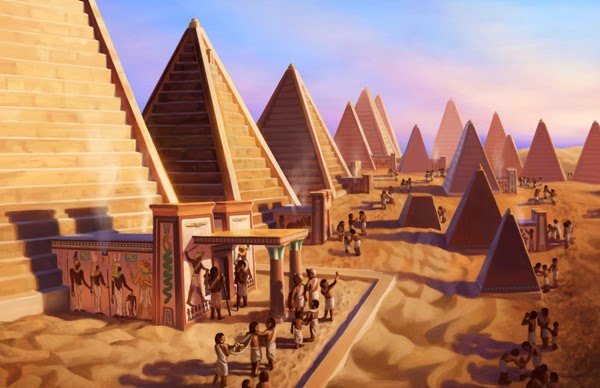
Now Amen, was seen as the champion of the less fortunate, and upheld the rights of justice fot the poor, and he (Amen) aided those who traveled in his name. If you read the Votive stelae, from the village Deir El-Medina, according to Lichtheims Ancient Egyptian Literature: Volume II: The New Kingdom (Lichtheim, 1976:105):
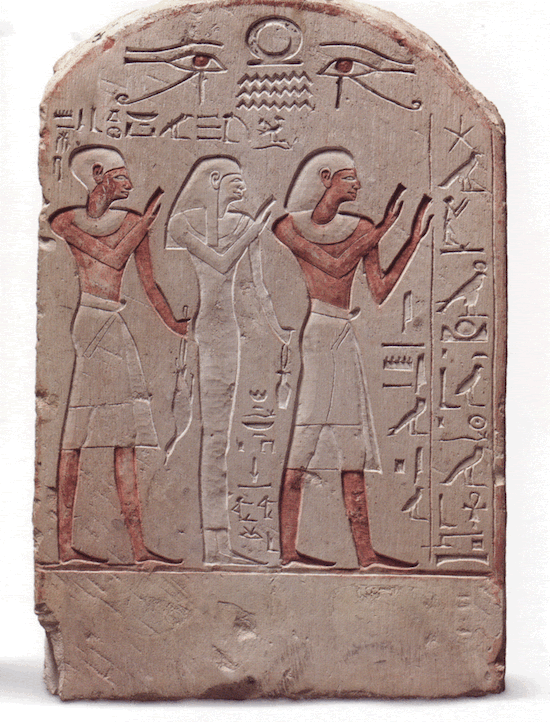
[Amen] who comes at the voice of the poor in distress, who gives breath to him who is wretched.. You are Amen, the Lord of the silent, who comes at the voice of the poor; when I call to you in my distress You come and rescue me...Though the servant was disposed to do evil, the Lord is disposed to forgive. The Lord of Thebes spends not a whole day in anger; His wrath passes in a moment; none remains. His breath comes back to us in mercy. May your ka be kind; may you forgive; It shall not happen again."
At some point in time, Egypt conquered Kush, and identified the Kushite deity as Amen, depicted with a Rams head (wooly ram with curved horns), which lead to Amen (Amun) being associated with the ram rising from the aged appearance of the Kush ram deity. Now Another kind of solar deity, looking like a ram can be traced several places in Africa (Nubia), and most likely can be traces back to the golden calf worship from The Books of Moses (Exodus 34,2), that might have looked something like the below, only, cast in gold.
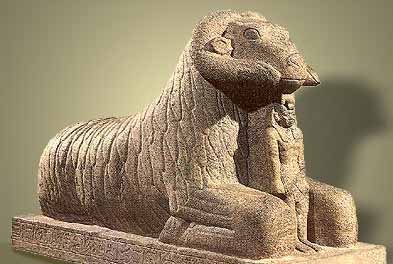
Now Egypts Amen, did in time fusion with the sun god RA which became Amen-Ra, that grew in stature in the Egyptian pantheon in the Egyptian New Kingdom, whenever that period was. A time most likely after Akhenaten (a story init itself). Amens position of King over the gods kinda morphed into a monotheism, there other lesser gods became manifestations of him. Osiris and Horus are others also widely known Egyptian gods from the ancient world. Now the name amen, does also have ties to Greek mythology and Zeus, who was also called ZEUS AMMON, which is just too close to Jesus the Amen for me...
.jpg)
This here is Zeus Ammon, in a Roman copy of a Greek original. The Greeks of the lower Nile Delta (probably even further south) and Cyrenaica combined features of supreme god Zeus with features of the Egyptian god Amen-Ra. Now Amun was worshipped by the Greeks as Ammon, a god which had its own temple and statue (Pindar, Thebes and Sparta), according to Pausanias. Amun had such a reputation in the ancient times that Alexander the Great was declared a Son of Amun after Issus battle and occupation of Egypt. Several words have been derived from amun, (then via the Greek form) Ammon, such as ammonia and ammonite. The hippocampus in the brain are called cornu ammonis - or in plain English Amun`s Horns... Something to think about.
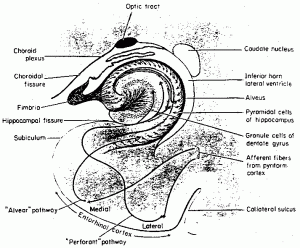
If you wikipedia or google this you get confirmations of the above, only its now being spelled amun, for some reason. And yeah, dont kid yourself, its the same deity. And its this deity you give honour to by praying in its name at the end of your prayers. Not a good idea (Exodus 23,14). In ancient times they called upon amen (not amun), just as we do today. Derivations such as amon, ammon (Zeus) and hammon, do occur. But its amen that was frequently used in Egyptian prayers. There are plenty of hymnbooks to attest to that fact. If I may ask, do you use the same amen in your prayers?


If you read some of the Egyptian prayers, you can easily see they where as pious as they come, only they where worshippers of images made from wood and stone. Amen was a MAJOR Egyptian deity who was a member of the Hermopolitan ogdoad - there was eight deities in total, check out the system, the Egyptians literally had a god for EVERYTHING, and amen became one of their, and seemingly the rest of the worlds, main deities.
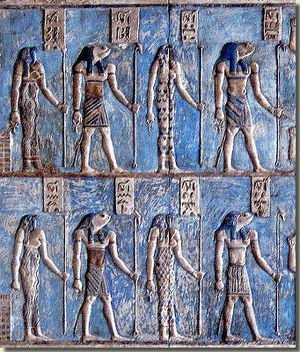
Now, what do you think The Almighty Creator of Heaven and earth meant when He said not to make an image of anything, either in heaven or on earth? (Exodus 20,4). I think He was talking about Egyptian works just like these. People will choose to worship, or so it seems, anything but the true worship and obedient dedication we owe to the ONLY Father, uBawo of Heaven....
Well, now you know, so don`t call for amen or zeus, but So NiNi na NiNi, the GREAT and Ultimate - I am that I am.

Dont bend a knee to name(s) of ancient African deities, such as Amun or Amen-Ra or even Zeus? Amen or Selah? Nah, Im staying far far away from even being associated, let alone praying in the name of amen or zeus. I won't for any reason want to utter thief after a reading of a Psalm. Which is just strange, dontcha think?
Uxolo lube nawe